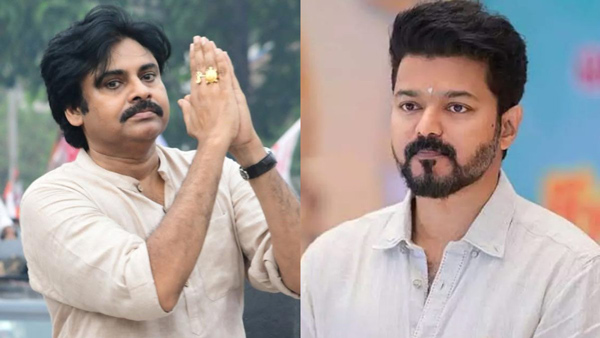Joining politics as a novice and winning a majority without forming coalitions has been a virtual impossibility in the politics of India today. Since both national and regional parties have entrenched voter constituencies, independent candidates—celebrities or professionals—tend to struggle against heavy odds when they fight on their own.
An example is that of Pawan Kalyan, who formed the Janasena Party and fought the 2019 Andhra Pradesh elections independently. It’s all in spite of his popularity, though, and he tasted a serious defeat. Taking a lesson from this, he subsequently joined up with the TDP and BJP, which served to give him a firm political base, landing him the role of Deputy Chief Minister eventually.
Now the same is happening in Tamil Nadu with the political entry of Kollywood actor Vijay. With his just-established party, Tamilaga Vettri Kazhagam (TVK), Vijay is preparing to contest the 2026 Tamil Nadu Assembly polls. In order to ensure maximum success, he has hired the services of respected political analyst Prashant Kishor, who is already engaged in working out a winning campaign.
Tamil Nadu’s political arena is mostly controlled by two veteran giants—the ruling DMK and opposition AIADMK. Despite the death of their stalwart leaders, Karunanidhi and Jayalalithaa, these parties still enjoy robust voter support bases. Although DMK might experience a minor decline in its vote share and AIADMK might gain some votes, there is no real political vacuum for TVK to fill. If Vijay decides to contest independently, the possibility of winning a majority seems remote.
As per reports, Prashant Kishor has told Vijay to think about joining hands with AIADMK. His calculations indicate that TVK can win around 20% of the votes, which, though remarkable for a new party, is not enough to give a serious challenge to DMK or AIADMK. Kishor’s suggested plan is to consolidate TVK with AIADMK to form a strong alliance. By combining AIADMK’s putative 25% votes with TVK’s 20%, and minor parties’ support, they have the possibility of toppling the incumbent DMK government.
According to this suggested power-sharing arrangement, AIADMK leader Edappadi K. Palaniswami would assume the Chief Minister position, with Vijay assuming the role of Deputy Chief Minister—granting him a powerful entry into government without the hardship of establishing power from scratch.
But this tactical step puts Vijay in a bind. His dream of joining politics was to lead on his own terms and not based on the shoulders of a veteran party. But with Kishor’s tactic providing an easier path to power, Vijay now has a difficult decision to make.
Will he opt for the safe route of an alliance like Pawan Kalyan to guarantee a sturdy political beginning or will he go ahead with his initial plan of a solo trip and face the risk of an extended and longer journey?
The next step from Vijay will not only cement his political trajectory but also realign Tamil Nadu’s political fate.

